- Home
- W. Somerset Maugham
Ten Novels and Their Authors Page 12
Ten Novels and Their Authors Read online
Page 12
But in any case Julien held all the cards. M. de la Môle had got him a commission in a crack regiment, and given him an estate which produced a sufficient income. Mathilde refused to have an abortion and, madly in love, had expressed her determination to live with Julien, married or not. Julien had only to state the plain facts of the situation, and the Marquis would have been obliged to give in. We have been shown, from the beginning of the novel, that the strength of Julien consisted precisely in his self-control. His passions, envy, hatred, pride, never dominated him; and his lust, the strongest passion of all, was, as with Stendhal himself, not so much a matter of urgent desire as of vanity. At the crisis of the book, Julien does the fatal thing in a novel: he acts out of character. Just when he most needs his self-control he behaves like a fool. On reading Madame de Rênal’s letter, he takes pistols, drives down to Verrières, and shoots her, not killing, but wounding her.
This unintelligible behaviour of Julien’s has greatly puzzled the critics, and they have sought explanations for it. One is that it was the fashion of the day to end a novel with a melodramatic incident, preferably with a tragic death; but if such was the fashion, that would surely have been sufficient reason for Stendhal, with his determination to run counter to accepted usage, to eschew it. Others have suggested that an explanation may be found in his fantastic cult of the crime of violence as the supreme manifestation of energy. I find this no more likely. It is true, of course, that Stendhal looked upon Berthet’s monstrous action as a beau crime, but can he have failed to see that he had made Julien a very different creature from the miserable blackmailer? Verrières was two hundred and fifty miles from Paris, and even with a change of horses at every stage, even if Julien drove day and night, the journey would take nearly two days, long enough for his rage to lessen and give way to the counsels of common sense. Then, the character that Stendhal has so penetratingly drawn would have turned back and, having faced M. de la Môle with the brutal fact of Mathilde’s pregnancy, forced him to consent to the marriage.
What then made Stendhal make the strange mistake which everyone agrees is a flaw in his great novel? It is evident that he could not allow Julien to succeed and, achieving his ambition, with Mathilde and M. de la Môle behind him, win place, power and fortune. That would have been a different book, and Balzac wrote it later in the various novels that tell of the rise of Rastignac. Julien had to die. It may be that Balzac, with his wonderful fecundity, might have found a means to end Le Rouge et le Noir in a way that the reader would accept not only as plausible, but as inevitable. I don’t think Stendhal could have ended it in any other way than he did. I believe that the facts which had been given him exercised an hypnotic power over him from which he was unable to break loose; he had followed the story of Antoine Berthet very closely and he felt himself under a compulsion to pursue it, against all credibility, to its wretched end. But God, fate, chance, whichever you like to call the mystery that governs men’s lives, is a poor story-teller; and it is the business, and the right, of the novelist to correct the improbabilities of brute fact. It was not in Stendhal’s capacity to do this. It is a great pity. But, as I have urged, no novel is perfect, owing partly to the natural inadequacy of the medium, and partly to the deficiencies of the human being who writes it. Notwithstanding its grave defects, Le Rouge et le Noir is a very great book, and to read it is a unique experience.
5
Balzac and Le Père Goriot
(1)
Of all the great novelists that have enriched with their works the spiritual treasures of the world, Balzac is to my mind the greatest. He is the only one to whom I would without hesitation ascribe genius. Genius is a word that is very loosely used nowadays. It is ascribed to persons to whom a more sober judgment would be satisfied to allow talent. Genius and talent are very different things. Many people have talent; it is not rare: genius is. Talent is adroit and dexterous; it can be cultivated: genius is innate, and too often strangely allied to grave defects. But what is genius? The Oxford Dictionary tells us that it is a ‘native intellectual power of an exalted type, such as is attributed to those who are esteemed greater in any department of art, speculation or practice; (an) instinctive and extraordinary capacity for imaginative creation, original thought, invention, or discovery’. Well, instinctive and extraordinary capacity for imaginative creation is precisely what Balzac had. He was not a realist, as Stendhal in part was, and as Flaubert was in Madame Bovary, but a romantic; and he saw life not as it really was, but coloured, often garishly, by the predispositions he shared with his contemporaries.
There are writers who have achieved fame on the strength of one or two books; sometimes because, from the mass they have written, only a fragment has proved of enduring value – such is l’Abbé Prévost’s Manon Lescaut; sometimes because their inspiration, growing out of a special experience, or owing to a peculiarity of temper, only served for a production of little bulk. They say their say once for all and, if they write again, repeat themselves or write what is negligible. Balzac’s fertility was prodigious. Of course he was uneven. In such a volume of work as he produced, it was impossible for him always to be at his best. Literary critics are apt to look askance at fertility. I think they are wrong. Matthew Arnold, indeed, looked upon it as a characteristic of genius. He said of Wordsworth that what struck him with admiration, what established in his own opinion the poet’s superiority, was the great and ample body of powerful work which remained to him, even after all his inferior work had been cleared away. He goes on to say: ‘If it were a comparison of single pieces, or of three or four pieces, by each poet, I do not say that Wordsworth would stand decisively above Gray, or Burns, or Coleridge or Keats…. It is in his ampler body of powerful work that I find his superiority.’ Balzac never wrote a novel with the epic grandeur of War and Peace, one with the sombre, thrilling power of The Brothers Karamazov, nor one with the charm and distinction of Pride and Prejudice: his greatness lies not in a single work, but in the formidable mass of his production.
Balzac’s field was the whole life of his time, and his range was as extensive as the frontiers of his country. His knowledge of men, however come by, was rare, though in some directions less exact than in others; and he described the middle class of society, doctors, lawyers, clerks and journalists, shopkeepers, village priests, more convincingly than either the world of fashion, the world of city workers, or of the tillers of the soil. Like all novelists, he wrote of the wicked more successfully than of the good. His invention was stupendous; his power of creation extraordinary. He was like a force of nature, a tumultuous river overflowing its banks and sweeping everything before it, or a hurricane blustering its wild way across quiet country places and through the streets of populous cities.
As a painter of society, his distinctive gift was not only to envisage men in their relations to one another – all novelists, except the writers of adventure-stories pure and simple, do that – but also, and especially, in their relations to the world they live in. Most novelists take a group of persons, sometimes no more than two or three, and treat them as though they lived under a glass case. This often produces an effect of intensity, but at the same time, unfortunately, one of artificiality. People not only live their own lives, they live also in the lives of others: in their own, they play leading parts; in those of others, parts that are sometimes important, but often trivial. You go to the barber’s to get your hair cut; it means nothing to you, but because of some casual remark of yours it may be a turning-point in the barber’s life. By realising all that this implies, Balzac was able to give a vivid and exciting impression of the multifariousness of life, its confusions and cross-purposes, and of the remoteness of the causes that result in significant effects. I believe he was the first novelist to dwell on the paramount importance of economics in everybody’s life. He would not have thought it enough to say that money is the root of all evil; he thought the desire for money, the appetite for money, was the mainspring of human action.
One must ever bear in mind that Balzac was a romantic. Romanticism, as we know, was a reaction from classicism, but to-day it is more convenient to contrast it with realism. The realist is a determinist, and he aims in his narratives at a logical verisimilitude. His observation is naturalistic. The romantic finds the life of every day humdrum and platitudinous, and he seeks to escape from the real world to a world of the imagination. He pursues strangeness and adventure; he wishes to surprise, and if he can only do so at the expense of probability he does not care. The characters he invents are intense and extreme. Their appetites are unfettered. They despise self-control, which they look upon as the dull virtue of the bourgeois. They approve with their whole being that saying of Pascal’s: Le cœur a ses raisons que la raison ne connaî point. Their admiration goes to him who is prepared to sacrifice everything and hesitates at nothing to achieve wealth and power. This attitude towards life exactly suited Balzac’s exuberant temper; it is hardly too much to say that if romanticism had not existed, he would have invented it. His observation was minute and precise, but he used it as a basis for the fabrications of his fantastic imagination. The idea that every man has a ruling passion suited his instinct. It is one that has always attracted the writers of fiction, for it enables them to give a dramatic force to the creatures of their invention; these stand out vividly, and the reader, from whom nothing is demanded but to know that they are misers or lechers, harpies or saints, understands them without effort. We of to-day, largely through the works of the novelists who have sought to interest us in the psychology of their characters, no longer believe that men are all of a piece. We know that they are made up of contradictory and seemingly irreconcilable elements; it is just these discordances in them that intrigue us and, because we know them in ourselves, excite our sympathy. Balzac’s greatest characters are formed on the model of those older writers who drew every man in his humour. Their ruling passion has absorbed them to the exclusion of all else. They are propensities personified; but they are presented with such wonderful power, solidity and distinctness that, even though you may not quite believe in them, you can never forget them.
(2)
If you had met Balzac in his early thirties, when he was already successful, this is the man you would have seen: a short, stumpy fellow, rather stout, with powerful shoulders and a massive chest, so that he would not have struck you as small, with a neck like a bull’s, its whiteness contrasting with the redness of his face; and thick, smiling lips, noticeably red. His teeth were bad and discoloured. His nose was square, with wide nostrils, and when David d’Angers did a bust of him, he said: ‘Take care of my nose! My nose is a world!’ His brow was noble; his hair dense and black, swept back on his skull like a lion’s name. His brown eyes, flecked with gold, had a life, a light, a magnetism, that were quite thrilling; they obscured the fact that his features were irregular and vulgar. His expression was jovial, frank, kindly and good-natured. Lamartine said of him: ‘His goodness was not a goodness of indifference or insouciance, it was an effectionate, charming, intelligent goodness, which inspired gratitude and defied you not to love him.’ His vitality was abounding, so that you felt it exhilarating merely to be in his company. If you had given his hands a glance, you would have been struck by their beauty. They were small, white and fleshy, and the nails were rosy. He was very proud of them; and, indeed, they would have become a bishop. Had you run across him in the day-time you would have found him in a shabby old coat, his trousers muddy, his shoes uncleaned, and in a shocking old hat. But in the evening, at a party, he was grand in a blue coat with gold buttons, black trousers, a white waistcoat, black silk openwork socks, patent leather shoes, fine linen and yellow gloves. His clothes never fitted him, and Lamartine adds that he looked like a schoolboy who has grown so much in the year that he’s bursting out of them.
Balzac’s contemporaries are agreed that at this time he was ingenuous, childish, kindly and genial. George Sand wrote that he was sincere to the point of modesty, boastful to the point of braggadocio, confident, expansive, very good and quite crazy, drunk on water, intemperate in work and sober in other passions, equally matter-of-fact and romantic, credulous and sceptical, puzzling and contrary. He was not a good talker. He was not quick in the uptake, and he had no gift of repartee; his conversation was neither allusive nor ironical; but as a monologuist his verve was irresistible. He roared with laughter at what he was going to say, and everybody laughed with him. They laughed to listen to him, and they laughed to look at him; André Billy says that the phrase, ‘he burst out laughing’, might have been invented for him.
The best life of Balzac has been written by André Billy, and it is from his admirable book that I have gained the information which I now propose to impart to the reader. The novelist’s real name was Balssa, and his ancestors were farm-labourers and weavers; but his father, who started life as clerk to an attorney, having after the Revolution come up in the world changed his name to Balzac. At the age of fifty-one he married the daughter of a draper who had made a fortune by government contracts, and Honoré, the eldest of his four children, was born in 1799 at Tours, where his father was administrator of the hospital. He had presumably got the job because Madame Balzac’s father, the ex-draper, had somehow become director-general of the Paris hospitals. Honoré appears to have been idle and troublesome at school. At the end of 1814 his father was put in charge of the catering to a division of the army in Paris and moved there with his family. It was decided that Honoré should become an attorney and, after passing the necessary examinations, he entered the office of a certain Maître Guyonnet. How he got on there is pretty well indicated by a note sent him one morning by the head clerk: ‘Monsieur Balzac is requested not to come to the office to-day, as there is a lot of work.’ In 1819 his father was retired on a pension and decided to live in the country. He settled down at Villeparisis, a village on the road to Meaux. Honoré stayed in Paris, since it had been decided that a friend of the family, a lawyer, should hand over his business to him when, after a few years of practice, he was competent to deal with it.
But Honoré rebelled. He wanted to be a writer. He insisted on being a writer. There were violent family scenes; but at last, notwithstanding the continuous opposition of his mother, a severe and practical woman whom he never liked, his father yielded so far as to give him a chance. It was arranged that he should have two years to see what he could do. He installed himself in an attic at sixty francs a year, and furnished it with a table, two chairs, a bed, a wardrobe and an empty bottle to serve as a candlestick. He was twenty. Free.
The first thing he did was to write a tragedy; and when his sister was about to be married and he went home, he took his play with him. He read it to the assembled family and two of their friends. All agreed that it was worthless. It was then sent to a professor, whose verdict was that the author should do whatever else he liked, but not write. Balzac, angry and discouraged, went back to Paris. He decided that, since he could not be a tragic poet, he would be a novelist, and he wrote two or three novels inspired by those of Walter Scott, Anne Radcliffe and Maturin. But his parents had come to the conclusion that the experiment had failed, and they ordered him to come back to Villeparisis by the first stage-coach. Presently a friend, a hack writer whose acquaintance Balzac had made in the Latin Quarter, came to see him and suggested that they should write a novel in collaboration. So began a long series of potboilers which he wrote sometimes alone, sometimes in collaboration, under various pseudonyms. No one knows how many books he turned out between 1821 and 1825. Some authorities claim as many as fifty. I don’t know that anyone has read them in quantity except George Saintsbury, and he acknowledges that it required an effort. They were for the most part historical, for then Walter Scott was at the height of his fame and they were designed to cash in on his great vogue. They were very bad, but they had their use in teaching Balzac the value of swift action to hold the reader’s attention, and the value of dealing with the subjects that people regard as of primary im
portance – love, wealth, honour and life. It may be that they taught him, too, what his own proclivities must also have suggested to him, that to be read the author must concern himself with passion. Passion may be base, trivial or unnatural, but, if violent enough, is not without some trace of grandeur.
While thus engaged, Balzac lived at home. There he made the acquaintance of a neighbour, a Madame de Berny, the daughter of a German musician who had been in the service of Marie Antoinette and of one of her maids. She was forty-five. Her husband was sick and querulous; she had had, however, six children by him, besides one by a lover. She became Balzac’s friend, then his mistress, and remained devoted to him till her death fourteen years later. It was a curious relation. He loved her as a lover, but he transferred to her, besides, the love he had never felt for his mother. She was not only a mistress, but a confidant, whose advice, encouragement and disinterested affection were always his for the asking. The affair gave rise to scandal in the village, and Madame Balzac, as was natural, highly disapproved of her son’s entanglement with a woman old enough to be his mother. His books, moreover, brought in little money, and she was concerned about his future. An acquaintance suggested that he should go into business, and the idea seems to have appealed to him. Madame de Berny put up forty-five thousand francs, and with a couple of partners he became a publisher, a printer and a type-founder. He was a poor business man and wildly extravagant. He charged up to the firm his personal expenditure with jewellers, tailors, bootmakers, and even laundresses. At the end of three years the firm went into liquidation, and his mother had to provide fifty thousand francs in order to pay his creditors.

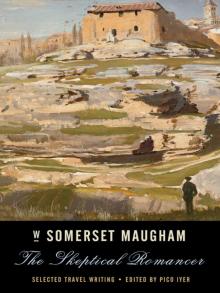 The Skeptical Romancer: Selected Travel Writing
The Skeptical Romancer: Selected Travel Writing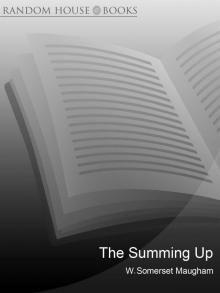 The Summing Up
The Summing Up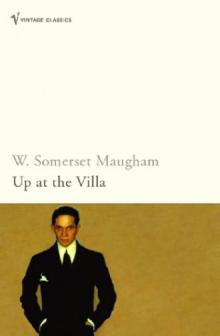 Up at the Villa
Up at the Villa The Razor's Edge
The Razor's Edge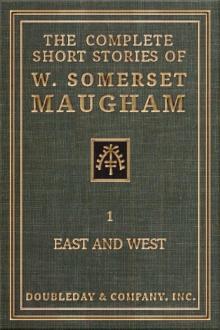 The Complete Short Stories of W. Somerset Maugham: East and West (Vol. 1 of 2))
The Complete Short Stories of W. Somerset Maugham: East and West (Vol. 1 of 2))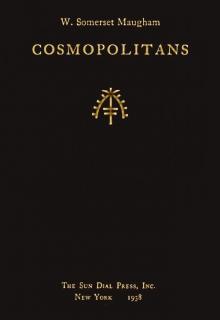 Cosmopolitans
Cosmopolitans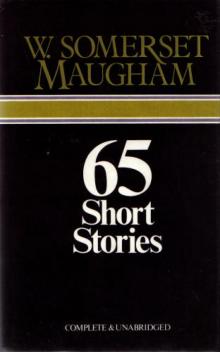 65 Short Stories
65 Short Stories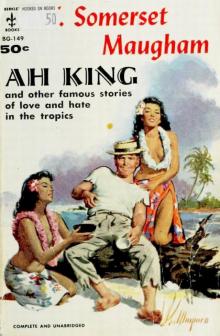 Ah King (Works of W. Somerset Maugham)
Ah King (Works of W. Somerset Maugham)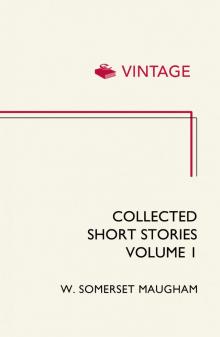 Collected Short Stories: Volume 1
Collected Short Stories: Volume 1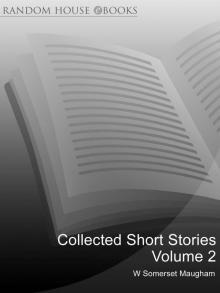 Collected Short Stories Volume 2
Collected Short Stories Volume 2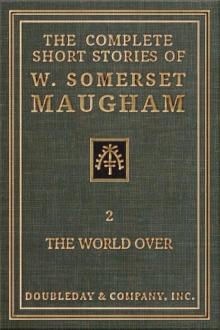 The Complete Short Stories of W. Somerset Maugham - II - The World Over
The Complete Short Stories of W. Somerset Maugham - II - The World Over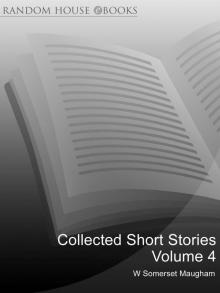 Collected Short Stories Volume 4
Collected Short Stories Volume 4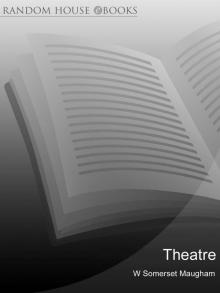 Theatre
Theatre Short Stories
Short Stories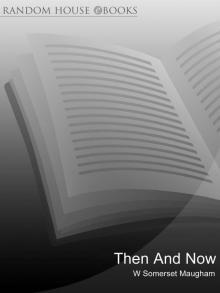 Then and Now
Then and Now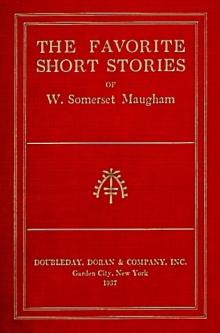 The Favorite Short Stories of W. Somerset Maugham
The Favorite Short Stories of W. Somerset Maugham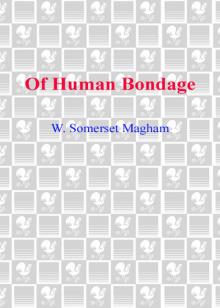 Of Human Bondage
Of Human Bondage The Magician
The Magician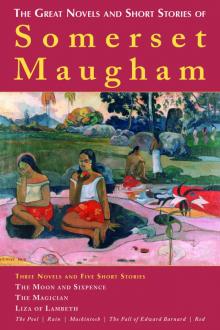 The Great Exotic Novels and Short Stories of Somerset Maugham
The Great Exotic Novels and Short Stories of Somerset Maugham A Writer's Notebook
A Writer's Notebook Christmas Holiday
Christmas Holiday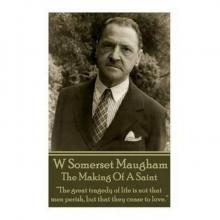 The Making of a Saint
The Making of a Saint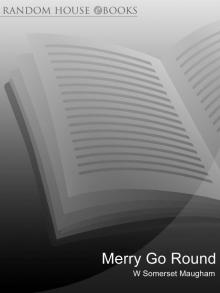 Merry Go Round
Merry Go Round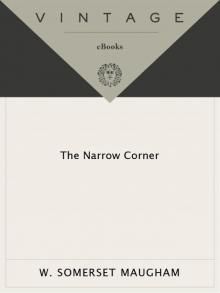 The Narrow Corner
The Narrow Corner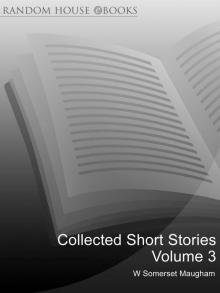 Collected Short Stories Volume 3
Collected Short Stories Volume 3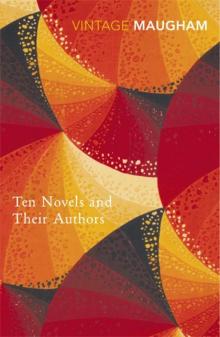 Ten Novels and Their Authors
Ten Novels and Their Authors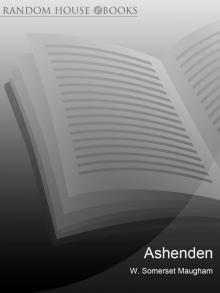 Ashenden
Ashenden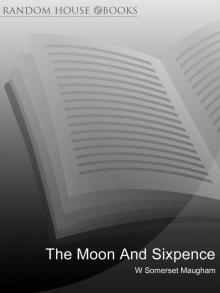 The Moon and Sixpence
The Moon and Sixpence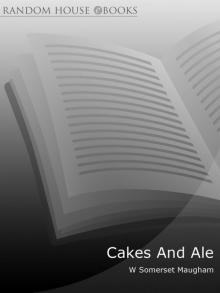 Cakes and Ale
Cakes and Ale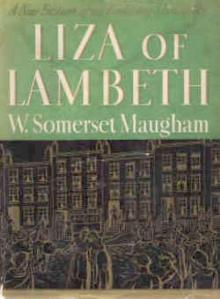 Liza of Lambeth
Liza of Lambeth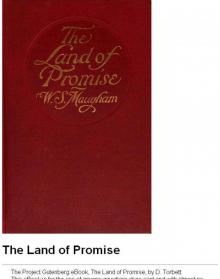 The Land of Promise: A Comedy in Four Acts (1922)
The Land of Promise: A Comedy in Four Acts (1922) A Writer's Notebook (Vintage International)
A Writer's Notebook (Vintage International)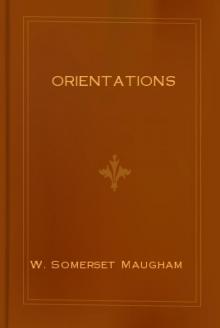 Orientations
Orientations Selected Masterpieces
Selected Masterpieces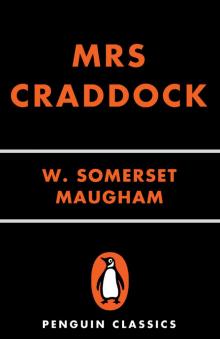 Mrs Craddock
Mrs Craddock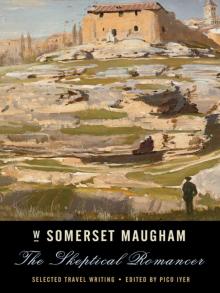 The Skeptical Romancer
The Skeptical Romancer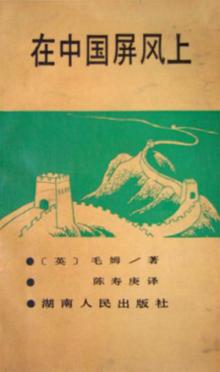 On a Chinese Screen
On a Chinese Screen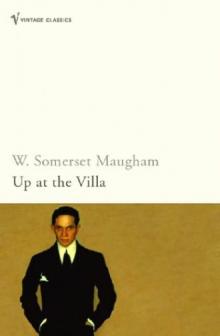 (1941) Up at the Villa
(1941) Up at the Villa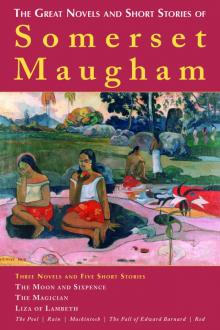 The Great Novels and Short Stories of Somerset Maugham
The Great Novels and Short Stories of Somerset Maugham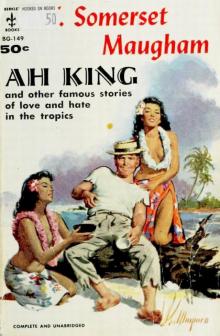 Ah King
Ah King The Explorer
The Explorer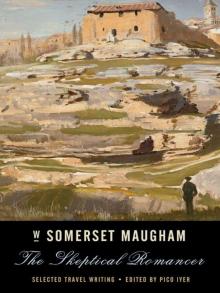 The Skeptical Romancer: Selected Travel Writing (Vintage Departures)
The Skeptical Romancer: Selected Travel Writing (Vintage Departures)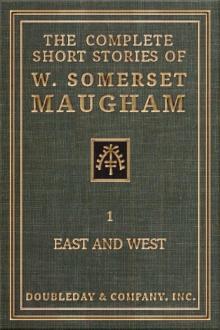 The Complete Short Stories of W. Somerset Maugham - I - East and West
The Complete Short Stories of W. Somerset Maugham - I - East and West